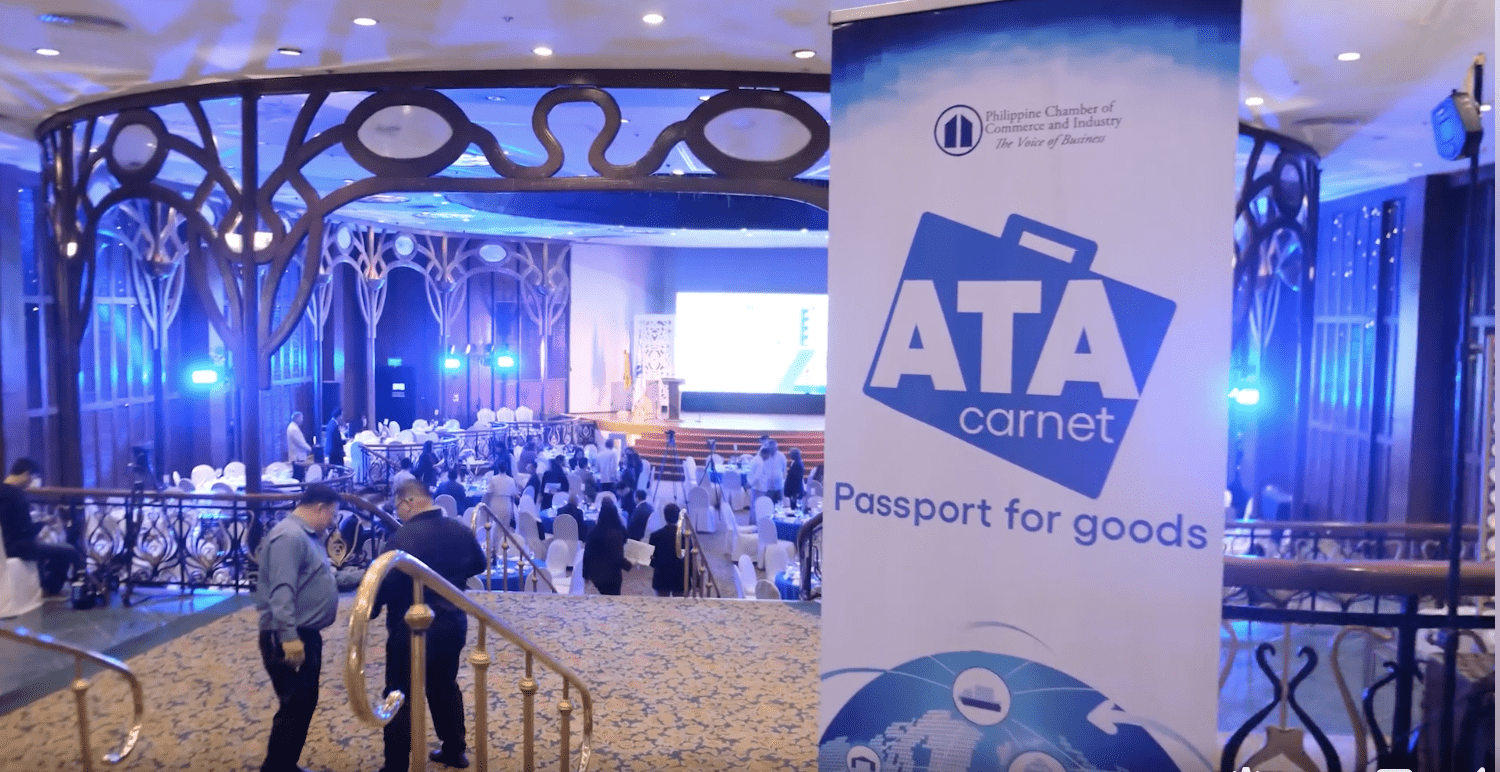The ATA Carnet system, recently launched in the Philippines by the Bureau of Customs and PCCI, simplifies the temporary export and import of goods for exhibitions, professional use, and commercial samples. This “Passport for Goods” reduces trade barriers and costs, enhancing global competitiveness and trade efficiency.
Manila, Philippines – July 15, 2024 – In a landmark development for Philippine trade, the Bureau of Customs (BOC) and the Philippine Chamber of Commerce and Industry (PCCI) have officially launched the ATA Carnet system, also known as the “Passport for Goods.” The unveiling took place at The Manila Hotel today, marking a pivotal moment for businesses and professionals engaged in international trade and exhibitions.
ATA Carnet System Beginning
The ATA Carnet system, which simplifies the temporary export and import of exhibition items, professional equipment, and commercial samples, has been introduced to streamline cross-border trade. Allowing these goods to enter and leave the country without incurring import duties or taxes—provided they are re-exported—is expected to boost trade efficiency and enhance the Philippines’ standing in the global market. With this implementation, the Philippines becomes the 81st country to adopt the ATA Carnet system.
Subscribe to the Ex-works24/7 newsletter
The launch event saw the presence of distinguished figures, including Dr. Anthony Cristobal and Rodrigo Villanueva Jr., who represented the Chamber of Customs Brokers Inc. Key stakeholders from various sectors were also in attendance, such as the International Chamber of Commerce Philippines, the International Chamber of Commerce World ATA Council, the Department of Finance, the Department of Trade and Industry, and numerous industry leaders and associations.
In his address, Commissioner Bienvenido Y. Rubio underscored the transformative impact of the ATA Carnet system, highlighting its role in simplifying business processes and boosting the country’s global competitiveness. “This initiative represents a significant leap forward in enhancing our trade infrastructure and facilitating smoother international transactions for Philippine businesses,” Rubio said.
ATA Carnet System Management
The management of the ATA Carnet system will be overseen by the PCCI, ensuring that businesses across the Philippines can seamlessly utilize this new tool. The system is anticipated to lead to increased participation in international fairs and exhibitions, ease for professionals traveling with their equipment, and a substantial reduction in the administrative burdens associated with temporary imports.
The successful launch of the ATA Carnet system reflects the collective efforts of the BOC, PCCI, and other key players in advancing a more dynamic business environment in the Philippines. The BOC remains committed to supporting this initiative and will continue to implement measures that facilitate trade and promote economic growth.
As the country embraces this new system, the ATA Carnet is set to play a crucial role in simplifying international trade and reinforcing the Philippines’ position as a competitive player in the global marketplace.
What are the Exhibitors at ATA Carnet?
Exhibitors benefit from the ATA Carnet system by avoiding import duties and taxes on their exhibition goods. This streamlined process simplifies temporary imports, reduces administrative burdens, and facilitates easier cross-border movement of exhibition items, allowing for cost-effective and efficient participation in international trade shows and exhibitions.
Who can apply for an ATA Carnet?
Businesses, organizations, and individuals who need to temporarily export or import goods for exhibitions, trade shows, or professional purposes can apply for an ATA Carnet.
How do I apply for an ATA Carnet in Philippines?
To apply for an ATA Carnet in the Philippines, follow these steps:
1. Prepare Required Documentation
– Detailed List of Goods: Include descriptions, values, and quantities of the items you plan to temporarily export or import.
– Proof of Value: Documentation showing the value of the goods, such as invoices or receipts.
– Purpose of Use: Information about the purpose of the temporary import (e.g., exhibition, professional use, commercial samples).
2. Contact the Philippine Chamber of Commerce and Industry (PCCI)
– The PCCI is responsible for managing the ATA Carnet system in the Philippines.
– Reach out to PCCI for guidance on the application process and specific requirements.
3. Complete the Application Form
– Obtain and fill out the ATA Carnet application form. This form is usually available through the PCCI or their authorized agents.
– Provide accurate details about the goods, their value, and their intended use.
4. Submit the Application
– Submit the completed application form along with the required documentation to the PCCI.
– You may need to provide additional information or meet with PCCI representatives if required.
5. Pay Applicable Fees
– Pay the fees associated with obtaining an ATA Carnet. These fees may include the cost of the carnet itself, insurance, and a deposit based on the value of the goods.
6. Receive Your ATA Carnet
– Once the application is processed and approved, you will receive your ATA Carnet.
– Ensure that all details on the carnet are accurate before using it for travel.
7. Use the ATA Carnet for Temporary Imports/Exports**
– Present the ATA Carnet to customs authorities when temporarily importing or exporting goods.
– Follow the carnet’s procedures to ensure that goods are re-exported within the validity period.
8. Re-export Goods
– Ensure that the goods are re-exported within the timeframe specified in the carnet to avoid incurring import duties and taxes.
The Philippines joined the ATA Carnet system to enhance its global trade competitiveness by simplifying temporary imports and exports for exhibitions, professional use, and commercial samples. This system streamlines customs procedures, eliminates import duties and taxes, and reduces administrative burdens, making international trade more efficient. As a growing number of countries adopt the ATA Carnet, the Philippines aligns with global standards to facilitate smoother business operations and boost economic opportunities.




